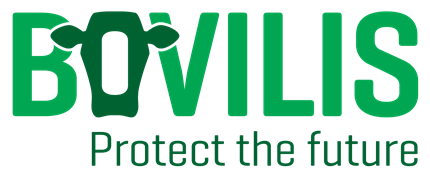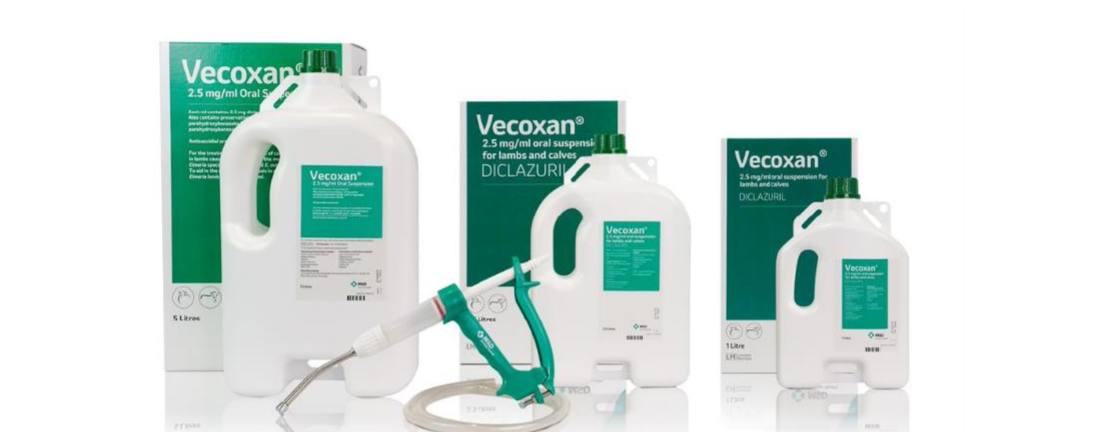

What is it?
Vecoxan is an oral suspension for the prevention of Coccidiosis in calves and lambs.
How does it work:
Vecoxan’s active ingredient, Diclazuril has a short duration of action which allows the animal to
become exposed to the parasite and build a natural immunity to the parasite which decreases the
susceptibility of calves to reinfection.
Why use it:
Vecoxan is a flexible product
- Licensed to prevent coccidiosis in both lambs and calves
- Allows naturally immunity to develop
- Higher daily live weight gain following use of Diclazuril
- Environmentally friendly
Administration:
There is ‘no one size fits’ all for treating coccidiosis on farms. It
is important to speak to your vet about the best approach for
your farm.
Historical treatment
Treat whole group 1 week before expected clinical signs:
Requires excellent records, knowledge of previous coccidiosis outbreaks & management history in the herd/flock.
Unknown
Treat 2 weeks after exposure or treat at time of stress factor (e.g., dehorning, castration, transport, weaning, regrouping etc.)
Clinical Outbreak
Reactive treatment: Treat all calves/lambs in a group when diarrhoea is first seen in 1 or 2 calves/lambs
It is important to always treat all the calves/lambs in the group, as coccidiosis is a group problem, not an individual problem.
A single administration to susceptible animals during risk periods is appropriate although a re-treatment may be necessary if the period of risk is prolonged.
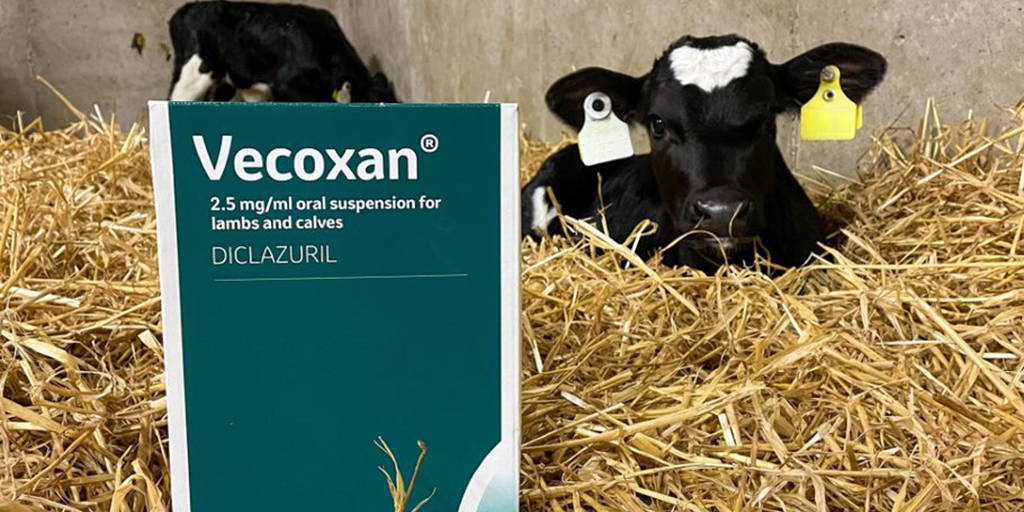

Product Focus
Vecoxan
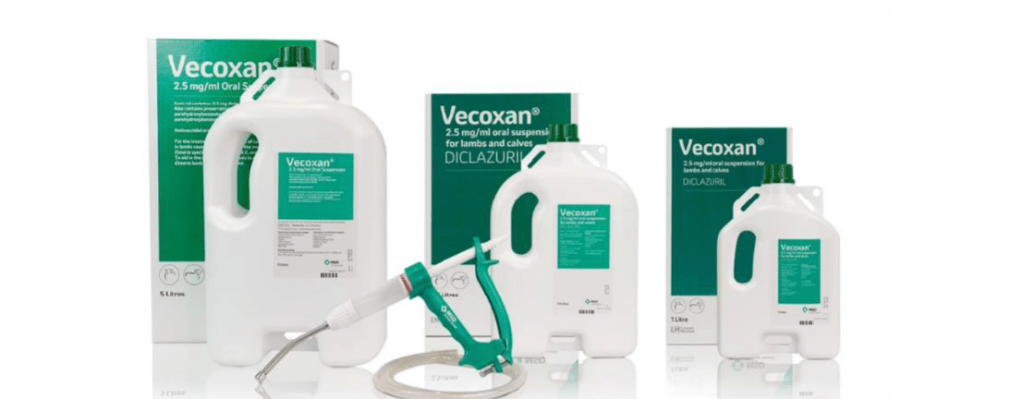
BVD Video
To activate the video player please allow cookies in category ‘Performance and Operation’ and refresh this page.
Related Articles
- Technology for Profit competition #TimeForTech
 We’re looking for Irelands most innovative dairy farmers! #TimeforTech Following the success of our Prevention for Profit campaign we’re excited to launch the “Technology for Profit” competition for 2025.
We’re looking for Irelands most innovative dairy farmers! #TimeforTech Following the success of our Prevention for Profit campaign we’re excited to launch the “Technology for Profit” competition for 2025. - Flies – Nuisance by name, nuisance by nature
 With temperatures slowly on the rise, next on the agenda – fly season. Impact on production and spread of disease Anyone who has worked with cattle during the summer months needs little reminding of the annoyance which flies can cause. They can be responsible for a state of unrest in the parlour for both cows … Read more
With temperatures slowly on the rise, next on the agenda – fly season. Impact on production and spread of disease Anyone who has worked with cattle during the summer months needs little reminding of the annoyance which flies can cause. They can be responsible for a state of unrest in the parlour for both cows … Read more - Reducing Abortion Rates in Your Flock: Enzootic Abortion of Ewes and Toxoplasmosis
 Eleanor Brady, MVB MRCVS, Ruminant Veterinary Manager, MSD Animal Health Many Irish flocks will experience a few abortions each year, but how many abortions is too many? Targets for abortion and overall empty rate are set at <2% and <5% respectively, although many flock owners accept rates higher than this. Approximately one third of lamb … Read more
Eleanor Brady, MVB MRCVS, Ruminant Veterinary Manager, MSD Animal Health Many Irish flocks will experience a few abortions each year, but how many abortions is too many? Targets for abortion and overall empty rate are set at <2% and <5% respectively, although many flock owners accept rates higher than this. Approximately one third of lamb … Read more
Vecoxan Brochure
Sign up to Bovilis® product and event information
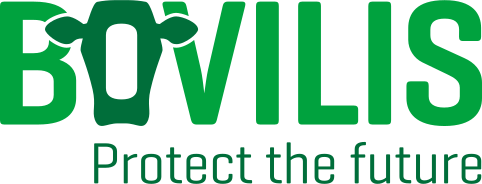
MSD Animal Health
Red Oak North, South County Business Park, Leopardstown,
Dublin 18, Ireland
vet-support.ie@msd.com
PHONE
CATTLE DISEASES
